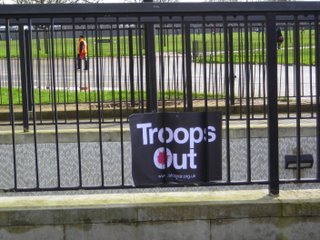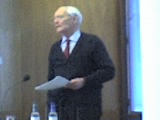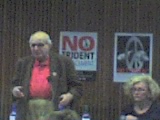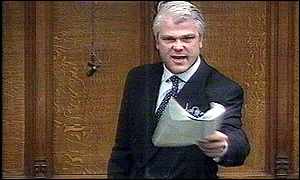
One of the more astute strategic decisions of the socialist government that ruled Grenada between 1979 and 1883 was not to challenge the constitutional position of Queen Elizabeth as head of state. This is what allowed the rather paradoxical hearing last week of English Law Lords sitting as the Privy Council in London to rule upon the fate of 13 socialist revolutionaries, who have been in gaol for the last 23 years.
They are incarcerated in a 17th century prison, and were tortured for the first nine years. The only woman prisoner, Phyllis Coard, was released early due to resulting mental health issues.
The thirteen are former ministers of the People’s Revolutionary Government (PRG) or officers of Grenada’s People’s Army, they were tried by a kangaroo court following the US invasion in 1983. Their trial was widely regarded as a travesty, with the proceedings being organised and paid for by the American government, the prosecution being allowed to choose the jurors, and the defence being denied access to the documents that could establish their innocence. Amnesty International published a damning report of the proceedings.
Nevertheless, the essential tragedy of the Grenadan revolution is that despite the enormous and lasting progress that the country made under the brief rule of the PRG, the period ended with Prime Minister Maurice Bishop dead, and his childhood friend and comrade, Bernard Coard (pictured), in prison for his murder. What went wrong?
Before we examine this, we need to understand the circumstances that led the new Jewel Movement coming to power. During the 1970s, Grenada was ruled by the frankly nutty, UFO enthusiast, Eric Gairy and his Grenada United Labour Party, who won an election in 1976, widely considered to have been completely rigged. The New Jewel Movement (NJM) was leading a popular campaign against illiteracy, poverty and economic under-development. Grenada is only a very small island, with a population of about 110000, and historically very poor.
It was widely known that from 1977 Gairy began receiving advice from General Augusto Pinochet of Chile and the Grenadan police and military were receiving "counter insurgency" training from the Chileans. In 1979 a rumour began circulating that Gairy planned to use his "Mongoose Gang" to assassinate leaders of the New Jewel Movement while he was out of the country. So in March that year, the NJM took over the nation's radio station and assumed the government without a shot being fired.
What followed was a remarkable four years of progress. A new airport was constructed to establish a tourism base for the economy, and huge strides were made in education and housing. As Bernard Coard, former Minister of Finance, explained in an interview from prison in 1994: “"You can generate a lot of support from people through their pocketbooks. We set in place a mass housing program, often benefitting the poorest people in Grenada, the people in Gairy's base, which influenced thousands of people, especially in a country where one house fits six or seven. We also relied heavily on the educational aspects of our mass rallies. … These mass rallies, usually led by Maurice Bishop, combined the spirit of the revolution with the basic information, economic factors local, national and international, that the people needed to understand their lives and surroundings. So these rallies were a new form of literacy which built political consciousness and support for the revolution.”
Significant numbers of Cuban and Russian doctors and teachers came to the island, and the level of illiteracy was halved during the four years. Even the nuns welcomed them. For the first time ever the Granadan government paid for students, often from modest backgrounds, to go overseas to study. Coard was himself an educationalist, a former academic at Sussex University, and a specialist in how black children were failed by British schools in the 1960s.
The plan was that the income from the airport, combined with a skilled workforce, could allow the island to break out of economic dependency. As Coard explained: "It's a very small island. You can have 10,000 people here unemployed and call that 40% unemployment. Figures here get magnified. But five factories of industries could wipe that out. Our plan was to use the money from the airport to recreate the nature of work in Grenada, to have fully high- tech employment based on the next stage of the education program, vocational-technological education. We put education first to develop the human resource, which should be seen as constant capital, for national economic development".
The difficulty was that although the NJM had no choice but to assume power, and had wide passive support, the social base that it stood on was very narrow. The NJM was largely the party of the educated and privileged elite, and the tiny island Granada simply didn’t have a workers movement, and most of the population were culturally impoverished. The NJM had no choice other than to rule Granada without participatory democracy. Neverterless, the NJM government permitted much greater levels of debate and political freedom than ever before seen in Grenada.
Given less unfavourable circumstances the NJM could have survived, but the right wing government of Ronald Reagan was determined to destabilise Grenada, through sanctions, sabotage, and military threats. The government therefore had a terrible strategic choice of appeasement to Washington which would mean rolling back the social programmes, and stopping the planned for industrialisation, to become a tourist led economic dependency of the USA; or alternatively turning toward the USSR.
Accounts of the NJM often paint Coard as a Stalinist, but this is a crude misreading of the sitiation. Firstly, the alignment of Grenada with the USSR was forced upon them by the Americans, although as a former member of the British Communist Party Coard was probably warmly disposed to it. But most crucially, the NJM was a democratic party, and most of the party membership and the leadership were in favour of industrialisation, and seeking the aid of the USSR was simply pragmatic. Had they been around today they would probably have turned to Venezuela.
This is when the split with Maurice Bishop occurred. Bishop wanted to appease the Americans, and although his support in the party was tiny, he was much more popular outside the party, because the NJM had promoted him as a figurehead. The appalling tragedy of 1983 was that the Coard faction of the NJM placed Bishop under house arrest, fearing that Bishop was planning a populist stunt to oust the party leadership in order to steer a course more acceptable to Washington.
According to US academic, Rich Gibson, who has spent some time with the prisoners: “All concerned could easily see that a split in the party would only prompt a US invasion, with the likely death of every militant. Yet that tragedy happened anyway, and the ground work for it was not simply created by the failures of the NJM leadership (among them the sheer exhaustion of the leadership who took on too much themselves, and the denial of the key vision of the women in the party who saw this coming but whose voices were not really heard), but also laid by problems inherent in what was the socialist project. The relationship of internal problems to external US pressure (which was incessant and ranged from direct violence to subtle sabotage), is important to understand.”
Bishop was released from house arrest by a large crowd of people. There was violence, and Bishop was executed. I give this account very tersely not to be evasive but because we don’t really know what happened. It is not clear whether or not Bishop was planning a coup, and it is not clear whether his death was premeditated, and if so by whom. The Cuban government condemned the execution of Bishop. Yet Coard has many international supporters, and supporters within Grenada, who claim he had no part in Bishop’s death.
Having done so much to create these tensions, the USA invaded. The Americans have subsequently created a myth that there were Cuban and even Russian troops in Grenada. This is hogwash, they ran into determined military resistance from the Grenadan People’s Army. Defending the glimpse of a better life they had had under the NJM, the young men and women of the GPA fought ferociously to defend Granada and for the vision of mankind’s socialist future. The Empire was briefly stopped in its tracks, and only subdued Granada after six days, after committing an extra 7000 troops, equivalent to an army of 4,500,000 invading Britain. (No one who saw it will ever forget the bizarre spectacle of Enoch Powell’s impassioned support for Grenada on BBC’s Newnight! And ITV realy did have viewers ringing to ask whether Coronation Street would be affected (it is made by Granada television))
Both Maurice Bishop and Bernard Coard, were principled, good men, who achieved much. The NJM government transformed Grenada: the airport is now operational,, and the literacy improvements have been maintained. They were victims of terrible circumstances, intolerable pressure from outside, and simply insufficient human and physical resources to prevail.
It is fantastic news that the Privy Council has declared that the cases should be sent back the Grenada’a High Court for re-sentancing. Hopefully the thirteen will soon be free, their incarceration has been a vindictive and spiteful one, whereby the US have sought to make an example to all who challenge its power. Let us hope that Bernard Coard and his comrades find some peace at last.





 We have seen various attacks on the welfare state under the guise of welfare reform. It seems like now that social housing is next on the agenda for attack. The post written by
We have seen various attacks on the welfare state under the guise of welfare reform. It seems like now that social housing is next on the agenda for attack. The post written by 




 Countries like South Africa post-apartheid has got rid of its nukes and many other countries have done the same. Yet countries like India and Pakistan (who are not NPT signatories) have been ignored and Israel who kinda admits to having nukes but no spotlight is thrown on them. And there's Iran who is only charged with breach of the (voluntary) additional protocol of the NPT yet will probably be suffering air strikes in the next couple of months. But don't despair George Bush has announced that he has "evidence" that Iran is up to no good so another "dodgy dossier" is on its way....
Countries like South Africa post-apartheid has got rid of its nukes and many other countries have done the same. Yet countries like India and Pakistan (who are not NPT signatories) have been ignored and Israel who kinda admits to having nukes but no spotlight is thrown on them. And there's Iran who is only charged with breach of the (voluntary) additional protocol of the NPT yet will probably be suffering air strikes in the next couple of months. But don't despair George Bush has announced that he has "evidence" that Iran is up to no good so another "dodgy dossier" is on its way....








